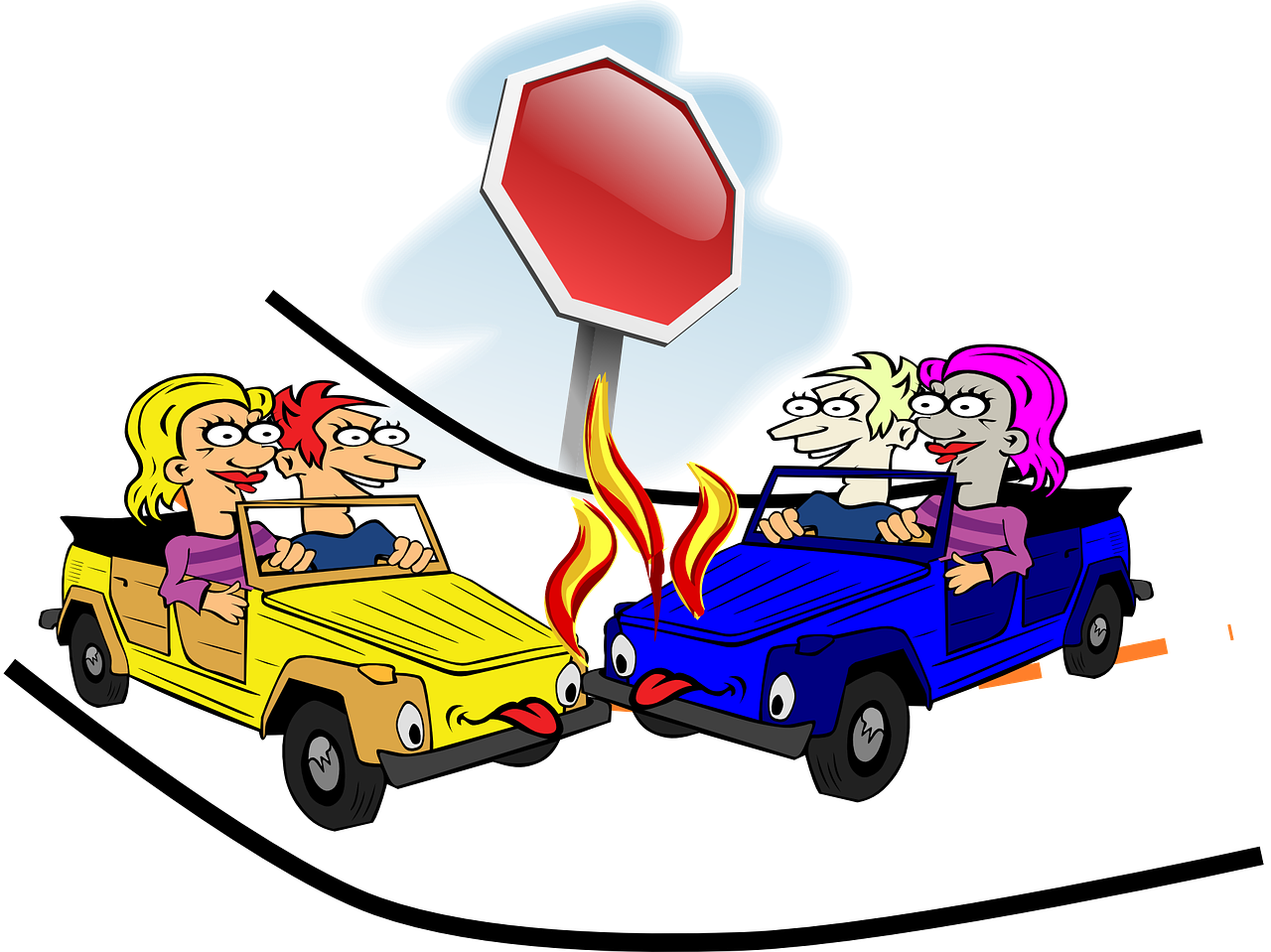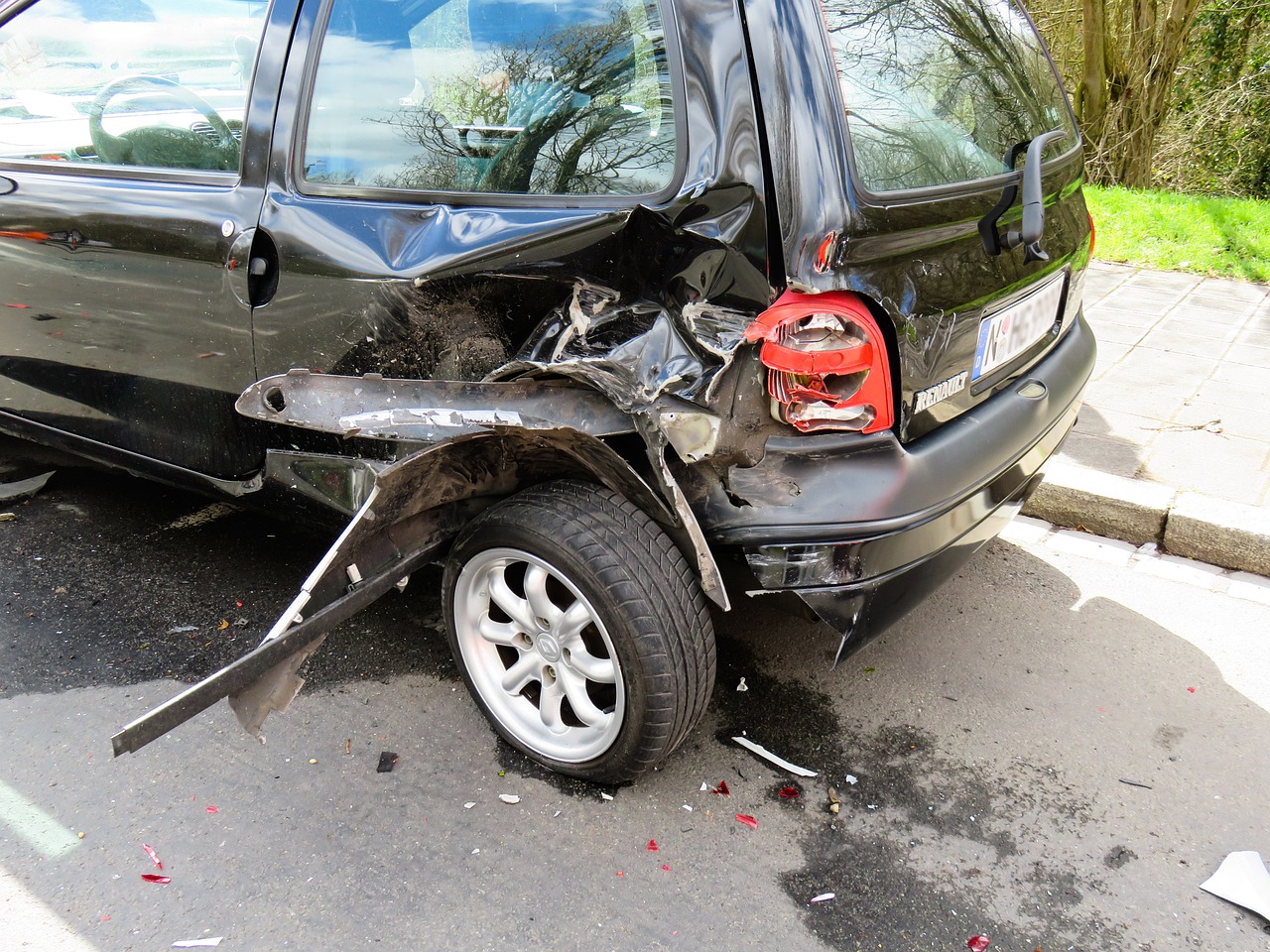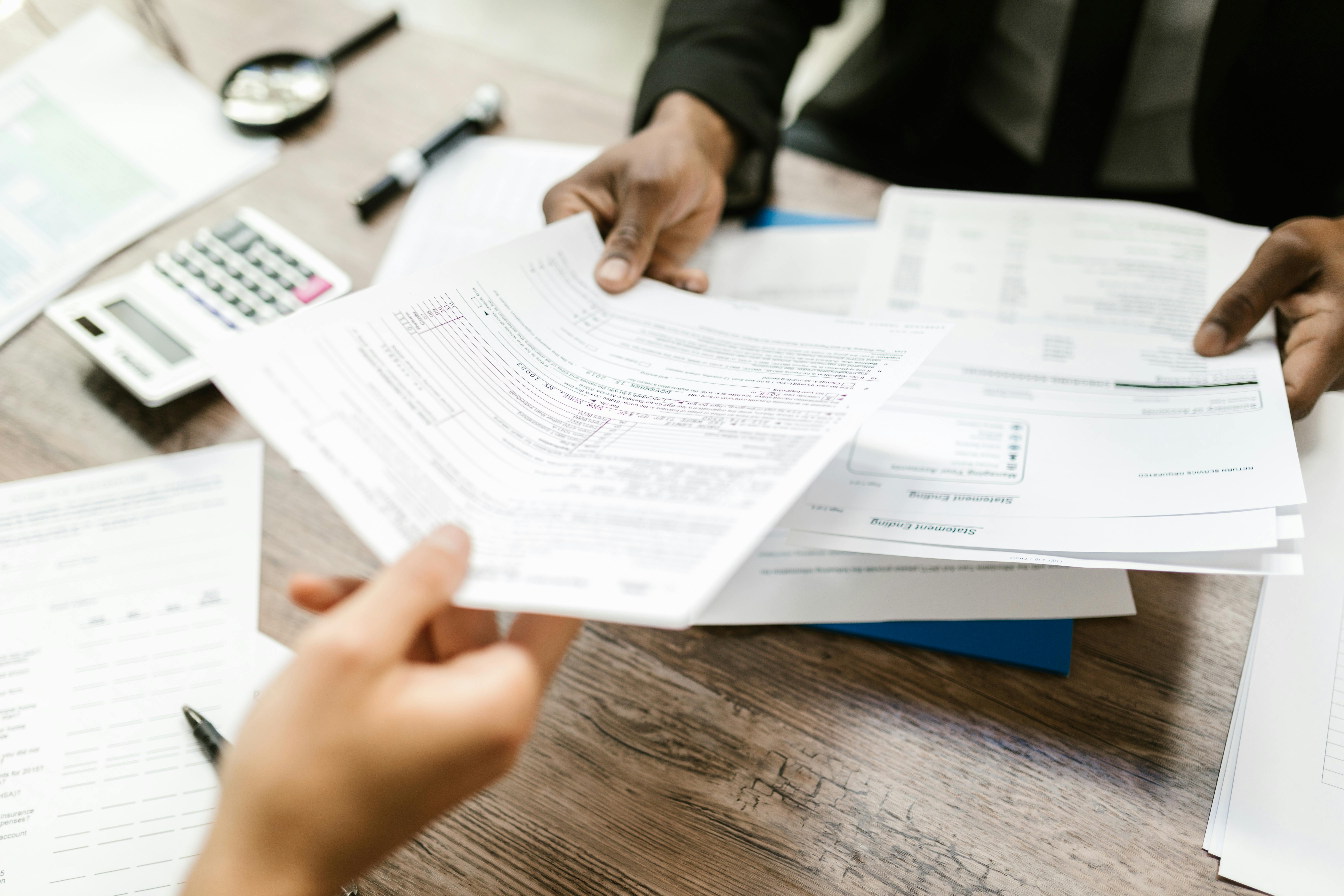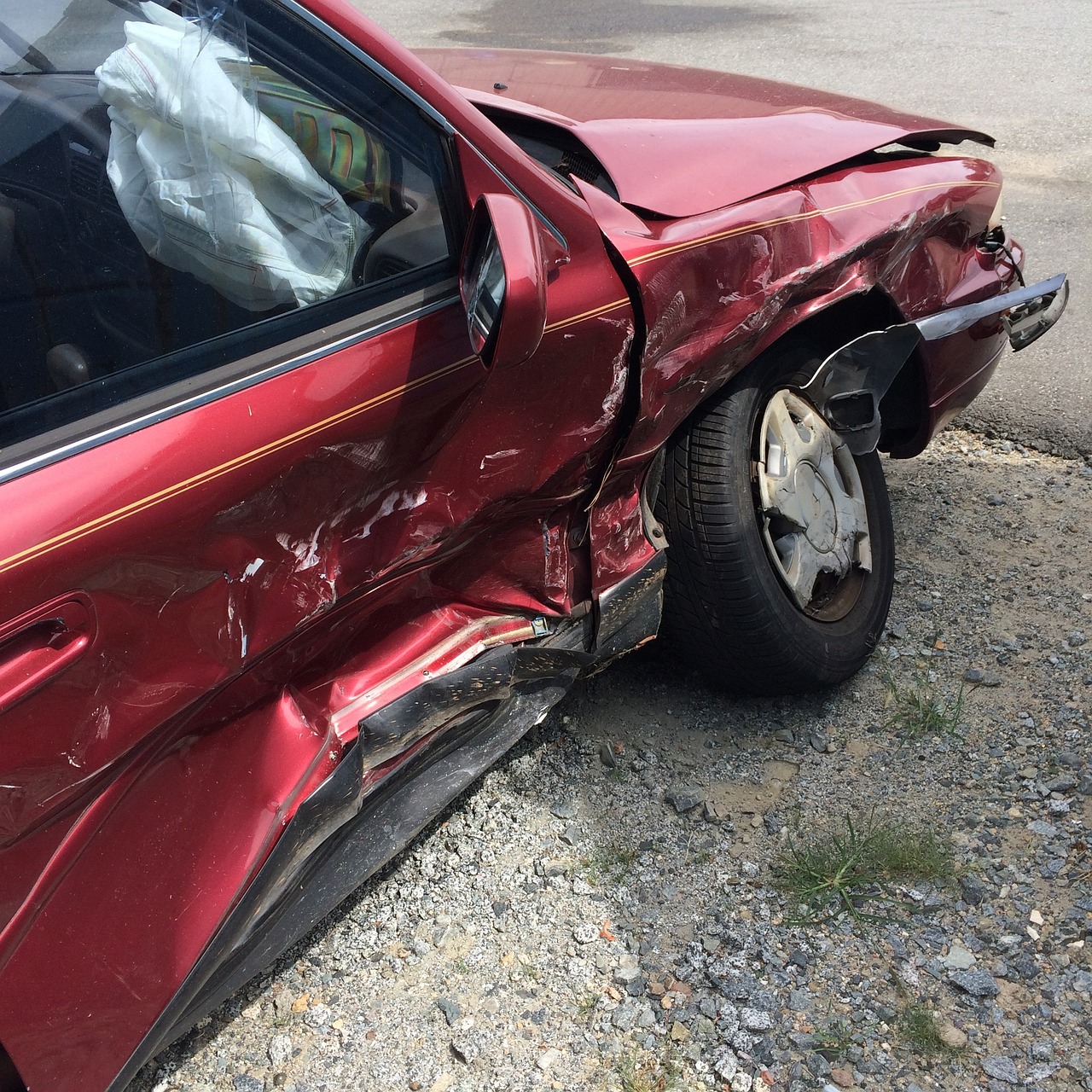So, you’ve found yourself in a car accident where you are at fault, and to add to the stress, the other person involved has hired a lawyer. It’s natural to feel overwhelmed and unsure of what to do next, but fear not, because we’re here to help. In this article, we will guide you through the process of navigating a car accident case when the other party has legal representation. From understanding your rights and responsibilities to knowing how to handle insurance claims, we’ve got you covered. So, sit back, relax, and let us guide you through this unexpected turn of events.
Understanding Fault in a Car Accident
Car accidents can be distressing events, but it is important to understand the concept of fault to navigate the legal process effectively. Determining fault is crucial in a car accident case as it decides who is to be held responsible for the incident and any resulting damages. By understanding fault, you can better prepare yourself for potential legal actions and ensure your rights are protected.
Determining Fault in Car Accidents
Fault in a car accident is typically determined through an investigation by insurance companies, the police, or other relevant authorities. They will examine several factors to establish who is at fault, including the statements of those involved, eyewitness accounts, photographs of the accident scene, and any available video footage. It is important to cooperate fully with these investigations and provide accurate information to facilitate the process.
Different Types of Fault Systems
There are different types of fault systems that can impact how fault is determined in a car accident. These systems vary between jurisdictions and can significantly affect the outcome of a case. The two primary fault systems are:
-
Comparative Negligence: In a comparative negligence system, fault is assigned to each party involved in the accident based on their degree of responsibility. Compensation is then distributed accordingly. For example, if you are found to be 30% at fault, you would receive only 70% of the total awarded compensation.
-
Contributory Negligence: In a contributory negligence system, if any party involved in an accident is found even partially at fault, they may be barred from recovering any compensation. This system is less common, and most jurisdictions have adopted some form of comparative negligence to allocate fault.
Understanding the fault system applicable in your jurisdiction is essential, as it can significantly impact your ability to seek compensation for damages.
Consequences of Being at Fault
If you are found to be at fault in a car accident, there are several potential consequences you may face. These can include:
-
Financial Liability: Being at fault means you may be responsible for covering all or part of the damages resulting from the accident. This can include property damage, medical expenses, rehabilitation costs, and lost wages.
-
Insurance Premium Increase: Being at fault in an accident can lead to an increase in your insurance premiums. Insurance companies consider at-fault accidents as indicators of higher risk, and therefore adjust the premiums accordingly.
-
Legal Action Against You: The other party involved in the accident may choose to take legal action against you to recover damages. They may hire a lawyer to represent their interests and seek compensation through a lawsuit.
-
Points on Your Driving Record: Depending on the severity of the accident and local traffic laws, being at fault may result in points being added to your driving record. Accumulating too many points can lead to driver’s license suspension or higher insurance premiums.
Understanding the potential consequences of being at fault can help you take the necessary steps to protect your interests in a car accident case.
The Role of the Other Person’s Lawyer
When you are at fault in a car accident and the other party decides to hire a lawyer, it is important to understand the role this lawyer will play in the legal proceedings.
When Does the Other Person Get a Lawyer?
Individuals involved in a car accident may choose to hire a lawyer when they believe they are entitled to compensation for damages resulting from the incident. They may consult with a lawyer to understand their rights, assess the strength of their case, and seek guidance on the legal options available to them. It is not uncommon for individuals to hire lawyers in car accident cases, especially when significant damages are involved.
Objectives of the Other Person’s Lawyer
The primary objective of the other person’s lawyer is to protect the interests of their client and seek maximum compensation for the damages suffered. They will gather evidence, assess the extent of the damages, negotiate with insurance companies, and potentially file a lawsuit if necessary. They will work diligently to build a strong case against you and advocate for their client’s rights throughout the legal process.
It is important to remember that although the other person’s lawyer may present challenges, you are not alone. With the right preparation and legal representation, you can navigate the complexities of a car accident case effectively.

Potential Legal Actions
When you find yourself at fault in a car accident and the other party hires a lawyer, several potential legal actions may arise. Understanding these actions can help you be prepared and make informed decisions regarding your own legal strategy.
Filing a Lawsuit
If the other person believes that the compensation offered by the insurance company is insufficient, they may choose to file a lawsuit against you. This legal action seeks to provide them with further avenues for seeking compensation by presenting their case before a judge or jury. It is essential to respond to any legal complaint promptly and seek legal advice to ensure you protect your interests and rights throughout the litigation process.
Negotiating a Settlement
Before or during the legal proceedings, there may be opportunities to negotiate a settlement with the other party. This involves reaching an agreement on a compensation amount without going to trial. Negotiations can be conducted directly between the parties or through their respective lawyers. It is important to approach settlement negotiations with care and consult with your own lawyer to ensure you are making informed decisions.
Going to Trial
If negotiations fail to reach a satisfactory resolution, the case may proceed to trial. This involves presenting evidence, witnesses, and legal arguments before a judge or jury who will then decide the outcome of the case. Going to trial can be a lengthy and expensive process, so it is crucial to have strong legal representation to effectively present your defense and protect your rights.
Navigating the potential legal actions can be complex, and it is advisable to consult with an experienced attorney who specializes in car accident cases. They can guide you through the legal process and help you make informed decisions regarding your defense strategy.
Understanding Your Rights and Responsibilities
In the aftermath of a car accident where you are at fault and the other person hires a lawyer, it is crucial to understand your rights and responsibilities. By doing so, you can effectively protect your interests and ensure you fulfill your legal obligations.
Consulting with Your Own Lawyer
One of the most important steps you can take is to consult with your own lawyer. They will help you understand the legal implications of the accident, navigate the legal proceedings, and provide you with personalized advice based on your specific circumstances. Having legal representation will ensure your rights are protected and that you have a strong defense strategy.
Making an Insurance Claim
As an at-fault party, you will typically need to inform your insurance company about the accident and make a claim. Your insurance policy may cover a portion of the damages resulting from the accident, up to the limit specified in the policy. It is important to cooperate fully with your insurance company and provide them with all the necessary details and evidence. Your lawyer can assist you in communicating with the insurance company to ensure your claim is handled appropriately.
Cooperating with the Other Party’s Lawyer
Cooperation with the other party’s lawyer is essential to facilitate the legal process. It is important to provide any requested documents, respond to inquiries truthfully, and avoid any confrontations or hostile behavior. Your lawyer can guide you on how to appropriately interact with the other party’s lawyer without compromising your defense strategy.
Understanding your rights and responsibilities is crucial to ensure you are taking the necessary steps to protect your interests throughout the legal process.
Navigating Insurance Claims
Dealing with insurance companies can be a challenging aspect of being at fault in a car accident. Understanding how to navigate insurance claims can help you effectively seek the compensation you are entitled to.
Dealing with Insurance Companies
After a car accident, you will likely need to communicate with your insurance company to initiate the claims process. It is important to provide accurate information about the accident, the parties involved, and any injuries or damages sustained. Be cautious when discussing the details of the accident, as anything you say may be used against you later. It is advisable to consult with your lawyer before providing any statements to insurance companies to ensure you are not inadvertently admitting fault or compromising your legal position.
Exploring Coverage Options
Your insurance policy may provide coverage for certain damages resulting from the accident. It is important to review your policy carefully and understand the extent of coverage available to you. Your lawyer can assist you in assessing your policy and exploring any additional coverage options that may be relevant to your case.
Navigating insurance claims can be complex, and it is advisable to seek legal representation to ensure you are fully informed about your rights and the available options for compensation.
Compensation and Damages
When you are at fault in a car accident and the other person hires a lawyer, understanding the types of compensable damages and the factors that can affect compensation is crucial. Maximizing your compensation can help alleviate some of the financial burdens resulting from the accident.
Types of Compensable Damages
Compensable damages resulting from a car accident can typically be categorized into two types:
-
Economic Damages: These are quantifiable financial losses directly related to the accident, such as medical expenses, property damage, lost wages, and rehabilitation costs. Economic damages aim to reimburse the injured party for the out-of-pocket expenses incurred as a result of the accident.
-
Non-economic Damages: Non-economic damages are intangible losses that are not easily calculable, such as pain and suffering, emotional distress, loss of companionship, and loss of enjoyment of life. These damages aim to compensate the injured party for the physical and emotional toll the accident has had on their life.
Understanding the types of compensable damages can help you assess the potential value of your case and seek appropriate compensation.
Factors Affecting Compensation
Several factors can influence the compensation you may receive in a car accident case:
-
Severity of Injuries: The extent and severity of injuries sustained in the accident will significantly impact the compensation amount. The more severe and long-lasting the injuries, the higher the potential compensation.
-
Degree of Fault: The degree of fault attributed to you and the other party involved in the accident will also affect the compensation amount. In comparative negligence systems, your percentage of fault will reduce the overall compensation you may receive.
-
Available Insurance Coverage: The available insurance coverage, both yours and the other party’s, will play a role in determining the maximum compensation amount. It is important to assess the coverage limits and explore any additional sources of compensation when seeking maximum damages.
-
Evidence and Documentation: The strength and quality of evidence, such as medical records, accident scene photographs, and eyewitness testimonies, can greatly impact the compensation awarded. Building a strong case with compelling evidence is crucial in maximizing your compensation.
Maximizing Your Compensation
To maximize your compensation, it is essential to consult with an experienced lawyer who specializes in car accident cases. They will assess the specific details of your case, gather relevant evidence, and develop a comprehensive strategy to present your case effectively. By having legal representation, you can navigate the complexities of the legal process and increase your chances of receiving fair and just compensation for the damages you have suffered.

Building a Strong Defense
When you are at fault in a car accident and the other person hires a lawyer, building a strong defense is paramount. By gathering evidence, obtaining witness statements, and constructing a solid legal strategy, you can effectively counter the claims made against you.
Gathering Evidence
Evidence is a vital component of building a strong defense. It is crucial to gather all relevant evidence, such as photographs of the accident scene, medical records, repair estimates, and any other documentation that supports your version of events. Your lawyer can guide you on what evidence is necessary to strengthen your defense and counter any claims made against you.
Witness Statements and Expert Testimony
Eyewitness statements and expert testimony can provide valuable support for your defense. Collect statements from individuals who witnessed the accident and who can provide an unbiased account of what occurred. In some cases, expert witnesses may be needed to provide specialized knowledge or analysis to support your defense. Consulting with your lawyer will help you determine the need for expert witnesses and secure their testimony, if necessary.
Construction of a Solid Legal Strategy
Building a solid legal strategy requires careful analysis of the facts and circumstances surrounding the accident. Your lawyer will assess the strengths and weaknesses of your case, identify potential defenses, and develop a comprehensive strategy tailored to your specific situation. They will work diligently to protect your interests and present your defense effectively during negotiations or trial.
Working closely with your lawyer to build a strong defense is crucial to ensure your side of the story is heard and your rights are protected.
The Importance of Legal Representation
When you find yourself at fault in a car accident and the other person hires a lawyer, the importance of legal representation cannot be overstated. Hiring an attorney specializing in car accident cases brings several benefits that can significantly impact the outcome of your case.
Benefits of Hiring an Attorney
By hiring an attorney, you gain access to their knowledge, experience, and expertise in navigating car accident cases. They will guide you through the legal process, provide personalized advice based on your specific situation, and ensure your rights are protected. An attorney will work diligently to build a strong defense, negotiate on your behalf, and represent your interests during any legal proceedings.
Navigating Complex Legal Procedures
Car accident cases involve complex legal procedures that can be overwhelming for individuals without legal training. Having an attorney by your side ensures you have someone who understands the intricacies of the legal system and can navigate it on your behalf. They will handle the paperwork, communicate with insurance companies and the other party’s lawyer, and guide you through each step of the process.
Minimizing Financial Losses
An experienced attorney will strive to minimize your financial losses resulting from the accident. They will advocate for maximum compensation and ensure that you are not taken advantage of during negotiations or settlement discussions. By protecting your interests and pursuing all available avenues for compensation, an attorney can help alleviate some of the financial burdens associated with being at fault in a car accident.
Hiring an attorney specialized in car accident cases can provide you with peace of mind, knowing that your rights are being safeguarded and that you have a knowledgeable advocate fighting for your best interests.

Common Mistakes to Avoid
When you are at fault in a car accident and the other party hires a lawyer, it is crucial to avoid common mistakes that can weaken your defense and negatively impact the outcome of your case.
Admitting Fault
One of the most critical mistakes to avoid is admitting fault. It is important to remember that fault is determined through an investigation and legal process, not by your admission or statement at the accident scene. Even if you believe you were at fault, admitting fault can be used against you during negotiations or trial. It is advisable to consult with your lawyer before providing any statements or admissions regarding the accident.
Giving Recorded Statements
Insurance companies may request recorded statements regarding the accident. It is important to be cautious when providing such statements, as they can be used as evidence against you. Insurance adjusters may ask leading questions or try to elicit statements that imply fault. Consulting with your lawyer before giving any recorded statements can ensure you are protecting your defense strategy.
Ignoring Medical Treatment
If you sustain injuries in a car accident, seeking timely medical treatment is crucial. Ignoring medical treatment or failing to follow through on recommended care can be detrimental to your case. Insurance companies and the other party’s lawyer may argue that your injuries are not serious or that they were caused by factors unrelated to the accident. By promptly seeking medical attention and following medical advice, you can provide strong evidence of the damages you have suffered.
Avoiding these common mistakes and working closely with your lawyer will help you protect your defense and ensure your rights are upheld throughout the legal process.
FAQs
Can I be sued if I am at fault in a car accident?
Yes, if you are at fault in a car accident, the other party involved can sue you to seek compensation for their damages.
Should I hire a lawyer if the other person gets one?
Yes, hiring a lawyer is crucial to ensure your rights are protected and to effectively counter any claims made against you. Your lawyer will advocate for your best interests and guide you through the legal process.
How long do I have to file a lawsuit?
The timeframe to file a lawsuit varies depending on the jurisdiction and local laws. It is important to consult with a lawyer as soon as possible to understand the specific deadlines that apply to your case.
What if the insurance company offers a low settlement?
If the insurance company offers a low settlement, it is advisable to consult with your lawyer before accepting or rejecting the offer. Your lawyer can assess the fairness of the settlement and negotiate on your behalf to seek a more appropriate amount.
What factors can affect the compensation I receive?
Several factors can influence the compensation you receive, including the severity of injuries, the degree of fault, available insurance coverage, and the strength of the evidence presented. Working closely with your lawyer can help maximize your compensation by effectively presenting your case.





















